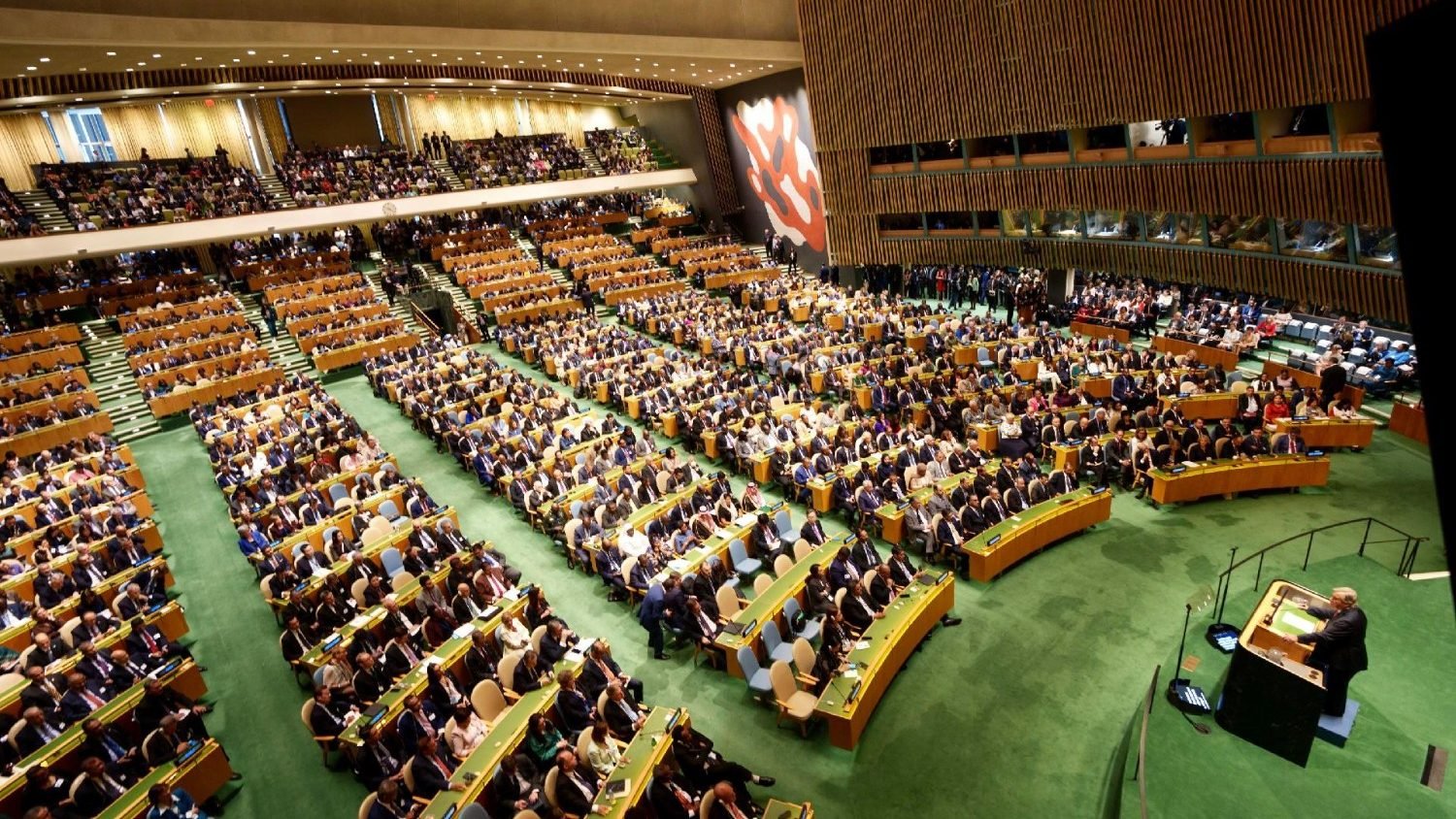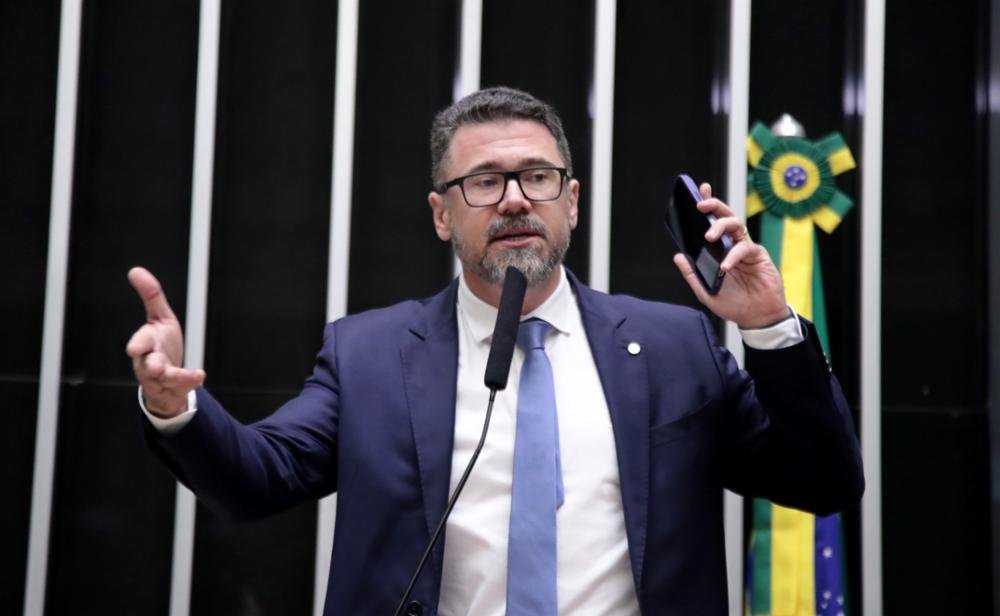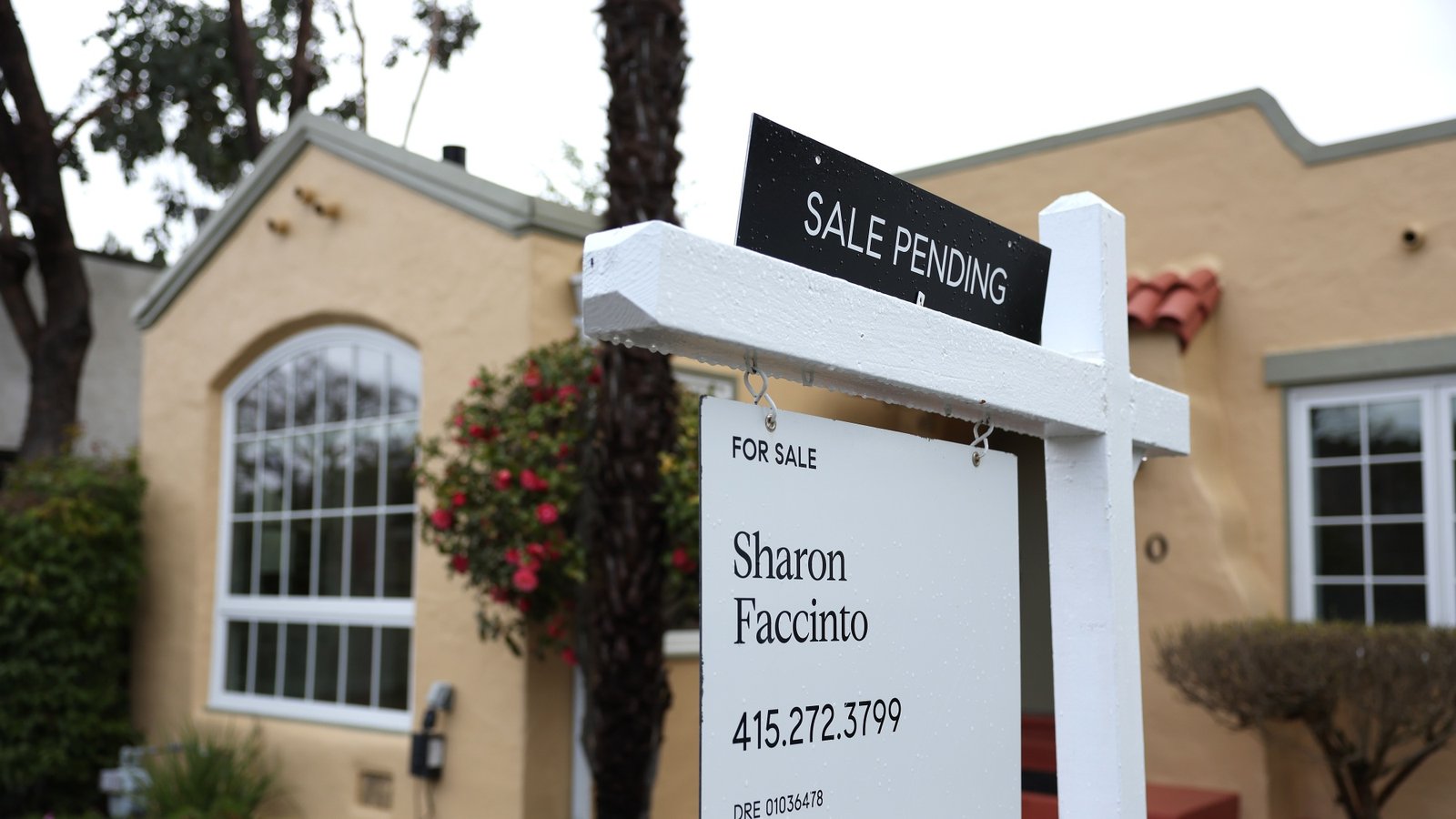
The ongoing tragedy in Gaza calls for a surge of humanity and the urgency of a shared response to the plight of the Palestinian people, which the Holy See has been consistently advocating for decades.
By Andrea Tornielli
President Emmanuel Macron has announced that France will recognise the State of Palestine, with a formal declaration to be made at the United Nations General Assembly this coming September. Meanwhile, preparations are underway for the “High-Level International Conference for the Peaceful Settlement of the Question of Palestine and the Implementation of the Two-State Solution..” This conference was initially planned to take place at the UN headquarters in New York last June, under the leadership of the French and Saudi governments, but it was postponed due to the Israeli attack on Iran.
The ongoing tragedy in Gaza – the repeated massacres of tens of thousands of innocent civilians who have died under the bombs, and who are now dying of hunger and deprivation, or being shot while trying to reach food – should make it clear to everyone how urgent it is to halt the military attacks that are causing this slaughter. At the same time, it highlights how indispensable a solution to the Palestinian question has become. This is a solution that the Holy See has been persistently calling for over many decades, and which cannot happen without the active contribution of the international community, as well as the countries directly involved.
It is useful to recall that the Holy See signed a basic agreement with the Palestine Liberation Organization (PLO) 25 years ago. Then, ten years ago, it signed a Comprehensive Agreement with the State of Palestine, which entered into force in January 2016. This decision and recognition are consistent with the concern expressed by Popes since 1948 about the condition of the Holy Places and the fate of the Palestinian people. Pope Paul VI was the first Pope to explicitly affirm that Palestinians were and are a people, not merely a group of war refugees. In his 1975 Christmas message, he asked the children of the Jewish people, whose sovereign State of Israel was already established, “to recognise the rights and legitimate aspirations of another people, who have also suffered for a long time – the Palestinian people.”
In the early 1990s, John Paul II established relations with both the State of Israel (1993) and the PLO (1994), at a time when it seemed the two parties were close to an agreement and to mutual recognition of two States. In February 2000, a few months before Israeli Prime Minister Ariel Sharon’s entry into the Al-Aqsa Mosque compound sparked the second Intifada, the Holy See signed the aforementioned Basic Agreement with the PLO. Upon arriving in Bethlehem in March 2000, John Paul II stated: “The Holy See has always recognized that the Palestinian people have the natural right to a homeland, and the right to be able to live in peace and tranquillity with the other peoples of this area. In the international forum, my predecessors and I have repeatedly proclaimed that there would be no end to the sad conflict in the Holy Land without stable guarantees for the rights of all the peoples involved, on the basis of international law and the relevant United Nations resolutions and declarations.”
Nine years later, during his visit to the Holy Land, Benedict XVI reaffirmed: Let it be universally recognized that the State of Israel has the right to exist, and to enjoy peace and security within internationally agreed borders. Let it be likewise acknowledged that the Palestinian people have a right to a sovereign independent homeland, to live with dignity and to travel freely. Let the twostate solution become a reality, not remain a dream.” In 2012, the Holy See supported the admission of the “State of Palestine” as an observer member of the United Nations.
Pope Francis, during his 2014 visit to the Holy Land, said before Palestinian President Mahmoud Abbas: “The time has come for everyone to find the courage to be generous and creative in the service of the common good, the courage to forge a peace which rests on the acknowledgment by all of the right of two States to exist and to live in peace and security within internationally recognized borders.” It was also the first time he referred to the host country as the “State of Palestine.”
This led to the 2015 Comprehensive Agreement between the Holy See and the State of Palestine, which insists on the two-state solution already envisaged in UN Resolution 181 of November 1947. The preamble of the Agreement, referencing international law, frames key points, including: the right of the Palestinian people to self-determination; the goal of the two-state solution; the symbolic and spiritual significance of Jerusalem for Jews, Christians, and Muslims; and its universal religious and cultural value as a treasure for all humanity. The preamble reaffirms the right of the Palestinian people “freedom, security and dignity in an independent State of their own” – an “independent, sovereign, democratic and viable State of Palestine on the basis of the pre-1967 borders, on the West Bank, including East Jerusalem, and the Gaza Strip, living side by side in peace and security with all its neighbours.”
Referring back to the 2000 Basic Agreement with the PLO, the Comprehensive Agreement renewed the demand for “equitable solution for the issue of Jerusalem, based on international resolutions,” asserting that “unilateral decisions and actions altering the specific character and status of Jerusalem are morally and legally unacceptable,” and that “any illegal unilateral measure, of whatever kind, is null and void” and “creates obstacles to the search for peace.”
This brief overview testifies to the consistency and realism of the position expressed in the appeals of recent Popes, in the Holy See’s statements to the United Nations, and in the agreements signed to date. Immediately following the inhuman terrorist attack by Hamas on 7 October 2023, Pope Francis condemned the massacre and repeatedly called for the release of all hostages. At the same time, while recognising Israel’s right to defend itself, the Holy See repeatedly – and in vain – called for restraint in targeting the entire Palestinian population in Gaza, and also denounced the attacks by settlers against Palestinians living in the West Bank, a part of the State of Palestine. Unfortunately, this did not happen: in Gaza and beyond, there are attacks that cannot be justified and represent a slaughter that weighs on the conscience of all.
As Pope Leo XIV clearly stated during the Angelus on Sunday, July 20th, it is urgent and necessary “to observe humanitarian law” and “to respect the obligation to protect civilians, as well as the prohibition against collective punishment, indiscriminate use of force and forced displacement of the population.” The international community cannot continue to stand by while this massacre unfolds. One hopes that the High-Level International Conference for the Peaceful Resolution of the Palestinian Question and the Implementation of the Two-State Solution, recognising the urgency of a collective response to the suffering of the Palestinian people, will vigorously pursue a solution that finally guarantees them a state with secure, respected, and recognised borders.




